Juicy ripe mangos and creamy sticky rice create a refreshing, sweet dessert you have to try.
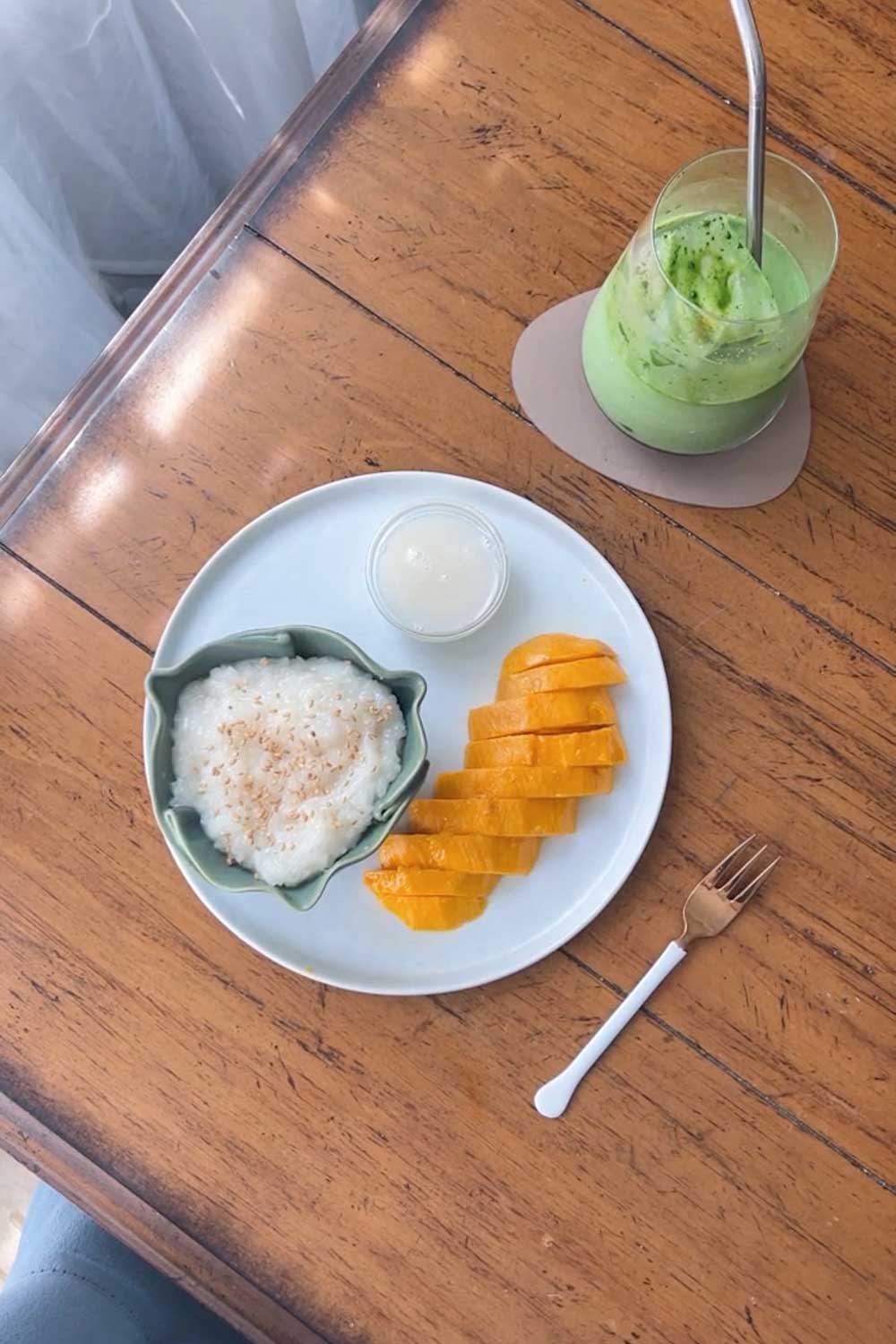
Mango Sticky Rice
I’ll admit – when I first heard of mango sticky rice, I was skeptical.
Rice… as a dessert?
But the first time I tried it, I was blown away. This classic Thai dessert is so simple and uses just a couple of ingredients, but tastes silky, bright and fresh.
It’s Thailand’s national dessert for a reason and luckily, it’s easy to recreate!
Make this now while mangos are still in season and thank me later.
Keep reading, or pin this article to save it for later ⇟
sticky summer im ready for you 🥭🍚 #mangostickyrice #alphonsomango #stickyricewithmango #mangoseason #thaidesserts #thaifood Ripe mangoes Sugar I like alphonso mangos! They’re the smaller yellow ones. I find that they’re sweeter and juicier, despite being smaller. Also I recommend making this with fresh mangoes only. Frozen mangoes will leak a lot of water when they defrost and won’t give the same texture. Sticky rice is different from regular rice. It’s a more glutinous rice typically used in sweet dishes. I used this Japanese sticky rice but the more traditional option would be Thai white glutinous rice. There are lots of different types of mangos! Most varieties are cultivated in Southeast Asia and India (apparently in India alone there are over 283 types!). In grocery stores here on the East Coast, I’ve usually only run into Haden mangos (the large round red and green ones) and alphonso mangoes (the small bean shaped yellow ones). I believe Haden mangoes are typically grown in Florida and Mexico. They tend to be a bit firmer, mildly sweet with a slight sour taste. Alphonso mangoes originated in India and are the ‘king of mangoes’ with a very sweet taste and smooth texture. I recommend using alphonso mangoes! They’re smaller, so unfortunately there’s less flesh on each fruit, but they taste sweeter, are juicier and have a superior texture. I find that to be the case with a lot of fruits and vegetables actually. The smaller varieties usually taste better. Side note: I discovered I am slightly allergic to mangos while making this dessert. Apparently ‘mango mouth’ is a relatively uncommon allergy but basically means you are allergic to the pollen in the peel. It took me a long time to figure out that I was allergic to mangos, since I never had a problem eating mangos at restaurants or with other people. Basically, the sign of being allergic is when your lips blow up and become incredibly itchy and painful. It feels a bit like my lower face is on fire and takes a good week before my lips scab over and go back to normal. I never could figure out what the cause was and chalked it up to lipstick, hot peppers, random other things. But I eventually realized mangos were the culprit! So if you have a similar allergic reaction – the good news is it’s caused by the pollen in the mango peel and generally occurs when you’re touching the peel and then eating freshly cut mango. So generally eating cut mango is fine. I guess this means I just need someone to pre-cut all my mango and make mango sticky rice for me in the future :) Sticky rice is not the same as regular rice. Sticky rice has a lot more gluten and is used in specific dishes and desserts in Asian cuisine. And, to make it more confusing, most Asian countries have their own version of ‘white rice’! Thai sticky rice is a glutinous rice. It has longer grains compared to say, Japanese sticky rice, and tends to be a bit starchier. Use whatever sticky rice you can find! I used Koshihikari (Japanese sticky rice) since I had it on hand, but Three Rings is a good Thai sticky rice option. It’s important to always rinse your rice before cooking it. Measure out your rice, pour it into a bowl and rinse it with water several times. On the first rinse, the water will be cloudy and opaque. You want to keep rinsing until the water is clear and you can easily see the rice underneath the liquid. Once the rice has been rinsed of excess starch, it’s time to let it soak. Sticky rice should be soaked for at least 3 – 4 hours before cooking it, but ideally overnight. Soaking helps the grains absorb water and ensures that they cook evenly. That way, the cooked glutinous rice will be tender but also have a distinct bite of chewiness. If you forget to pre-soak, the sticky rice can be easily overcooked Typically, sticky rice is steamed in a bamboo basket. It’s not cooked quite the same as traditional rice because it will turn to mush if cooked conventionally. But, if you have an electric rice cooker like Zojirushi, they have a sweet rice setting! I’ve been using my Zojirushi to death since I got it and it’s been fantastic for making white rice, brown rice, oatmeal, sticky rice – any kind of rice. With the Zojirushi or any rice cooker with a sweet rice setting, you add rice and pour in water up to the designated water line and cook it as you would regular white rice. It takes all the guesswork out of making rice and cooks perfect rice every time! Highly recommend. I also used full fat coconut milk. I recommend this as opposed to coconut cream. For sweetener, I use white sugar. Don’t substitute palm sugar or brown sugar because it will turn the syrup slightly darker. If you have any leftovers, you can store the sticky rice and coconut sauce in the fridge. But, this is a dessert that really tastes best fresh, on the same day it’s been made! Reheating sticky rice can cause it to dry out so I would add a bit extra coconut milk as you reheat to help it stay moist. Juicy ripe mangos and creamy sticky rice create a refreshing, sweet dessert you have to try. Prepare Sticky Rice Make the Sticky Rice Make the Coconut Syrup Make the Salted Coconut Sauce Assemble Adapted from Hot Thai Kitchen As an Amazon Associate and member of other affiliate programs, I earn from qualifying purchases. Follow me onMango Sticky Rice Recipe Video
What You’ll Need
How to Make Mango Sticky Rice
Which Type of Mangos to Use
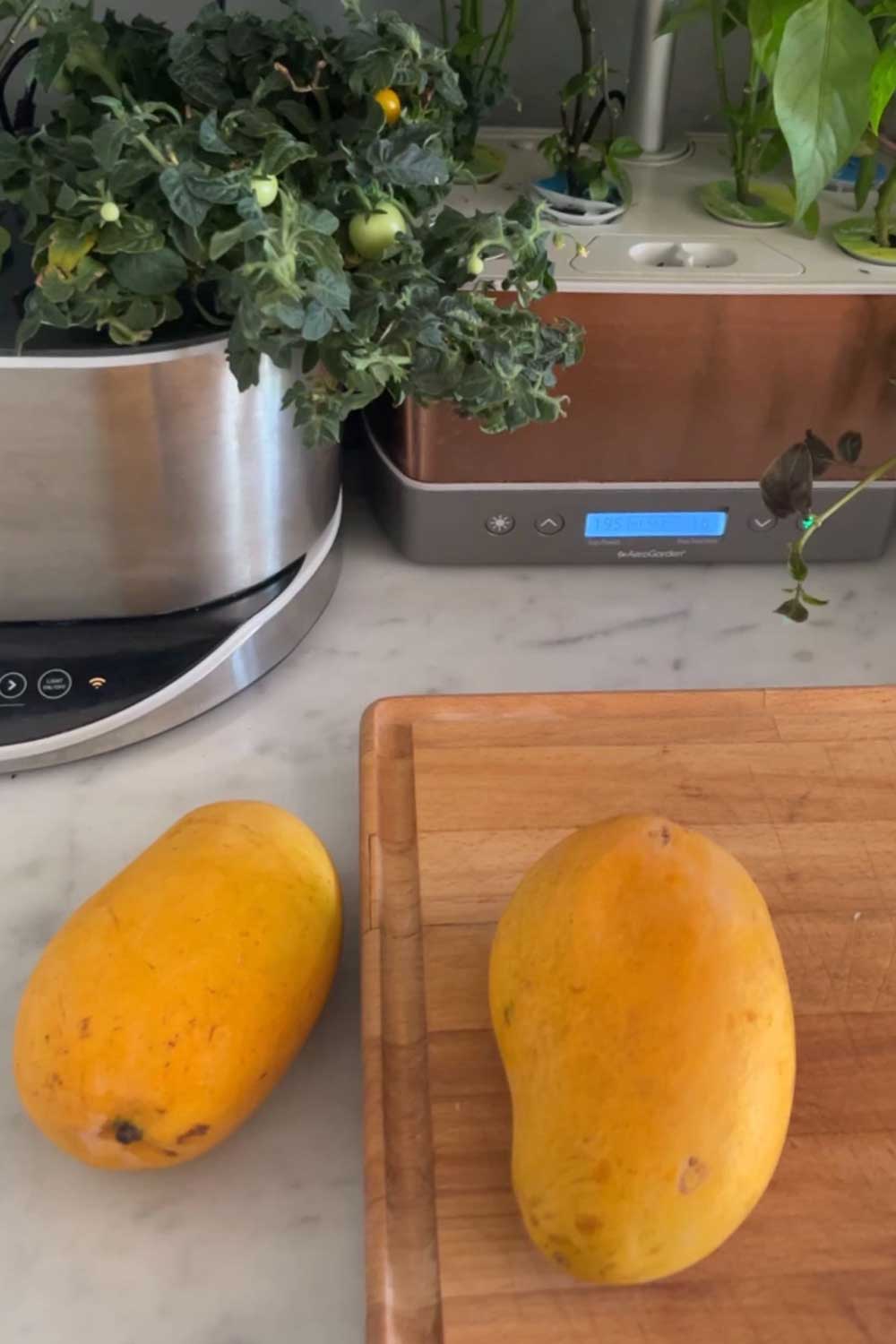
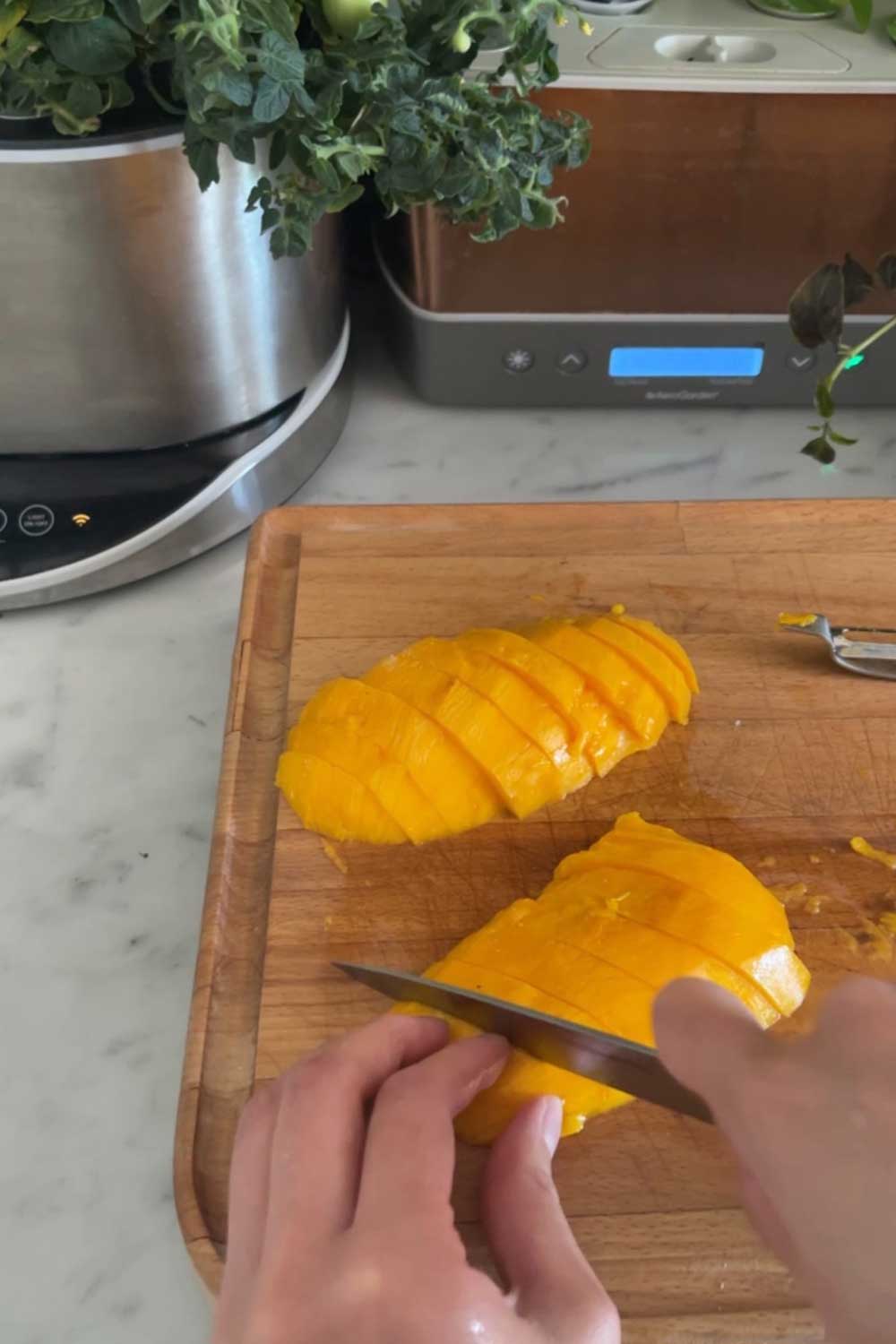
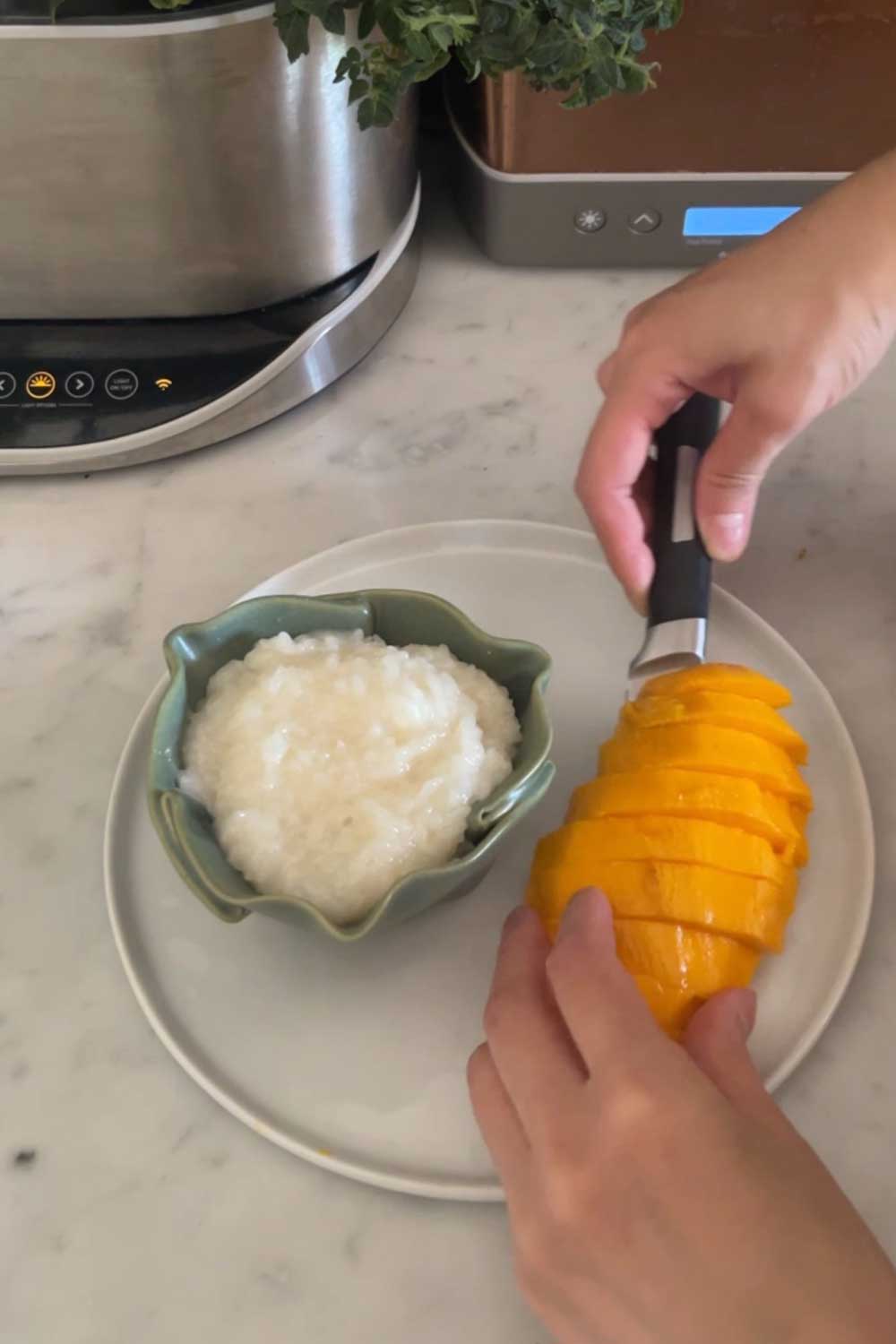

Mango Allergies
Sticky Rice
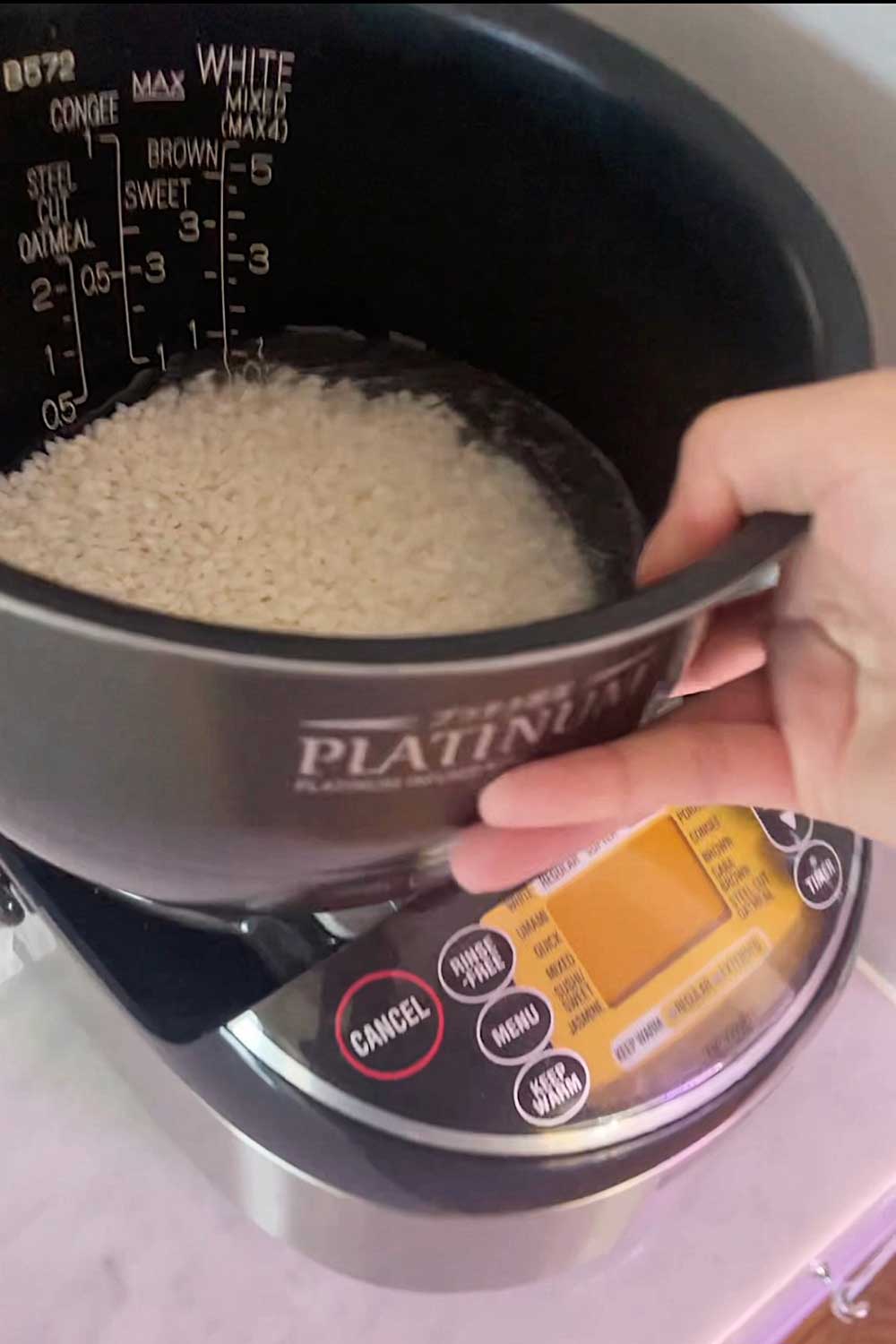
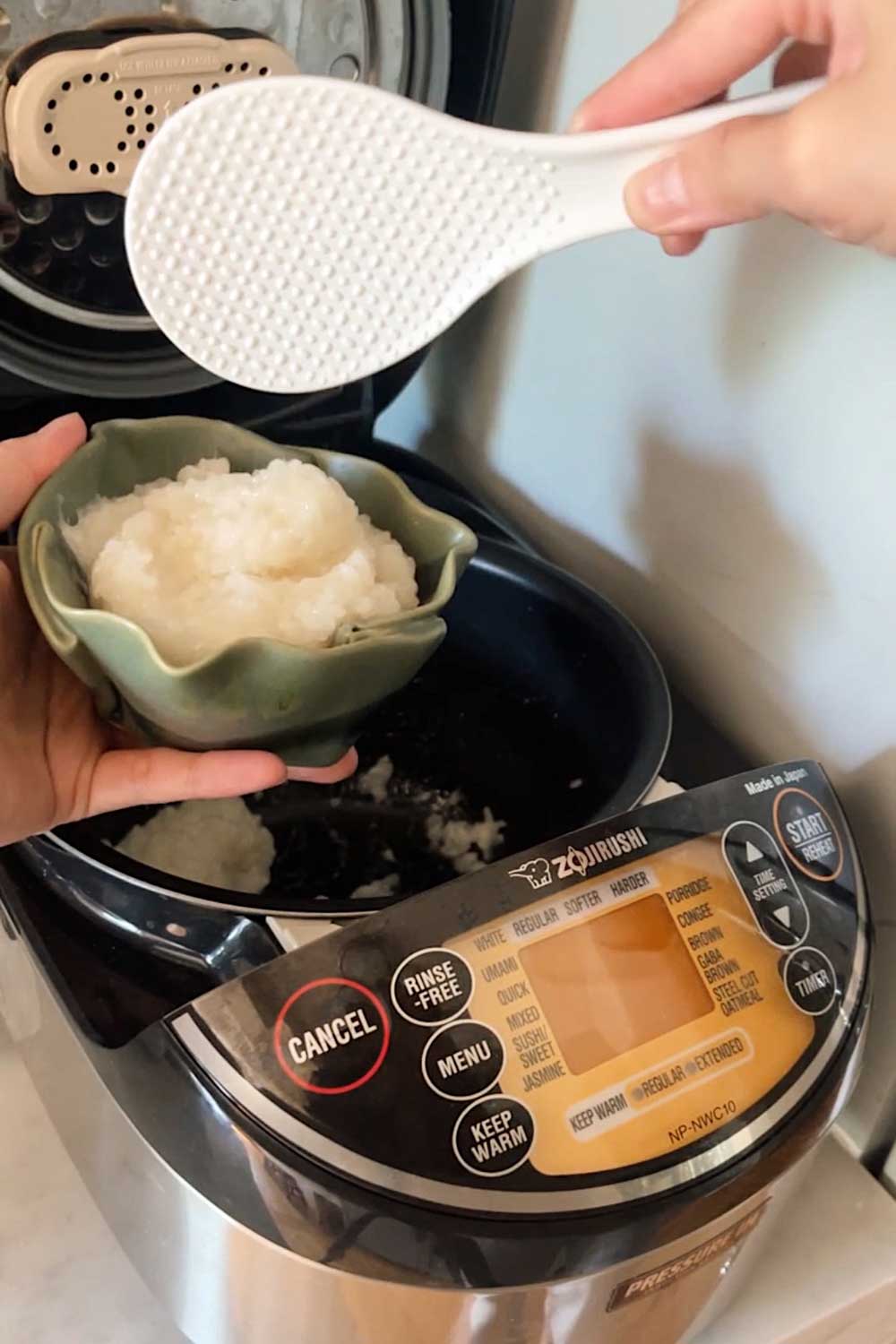
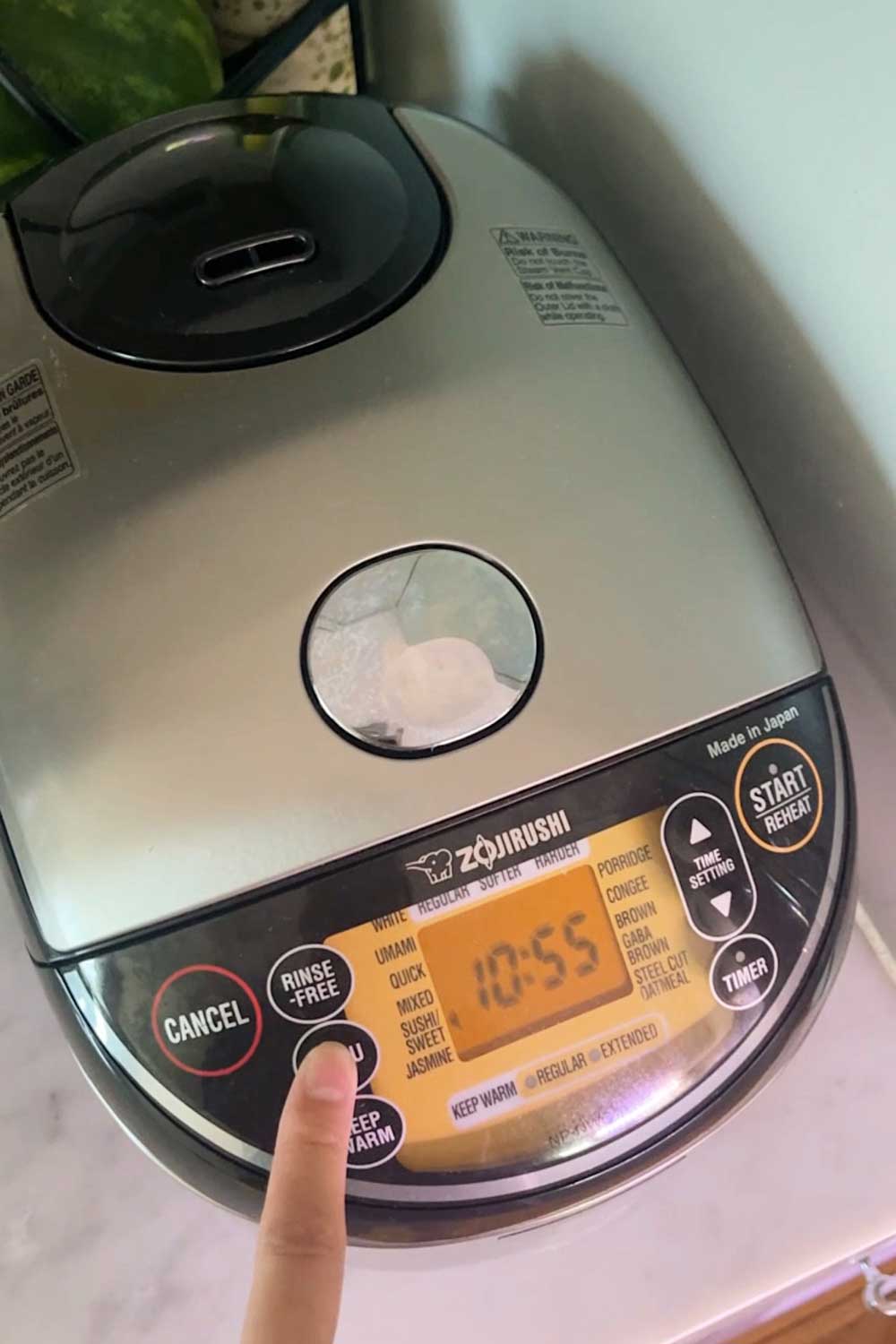
How to Cook Sticky Rice
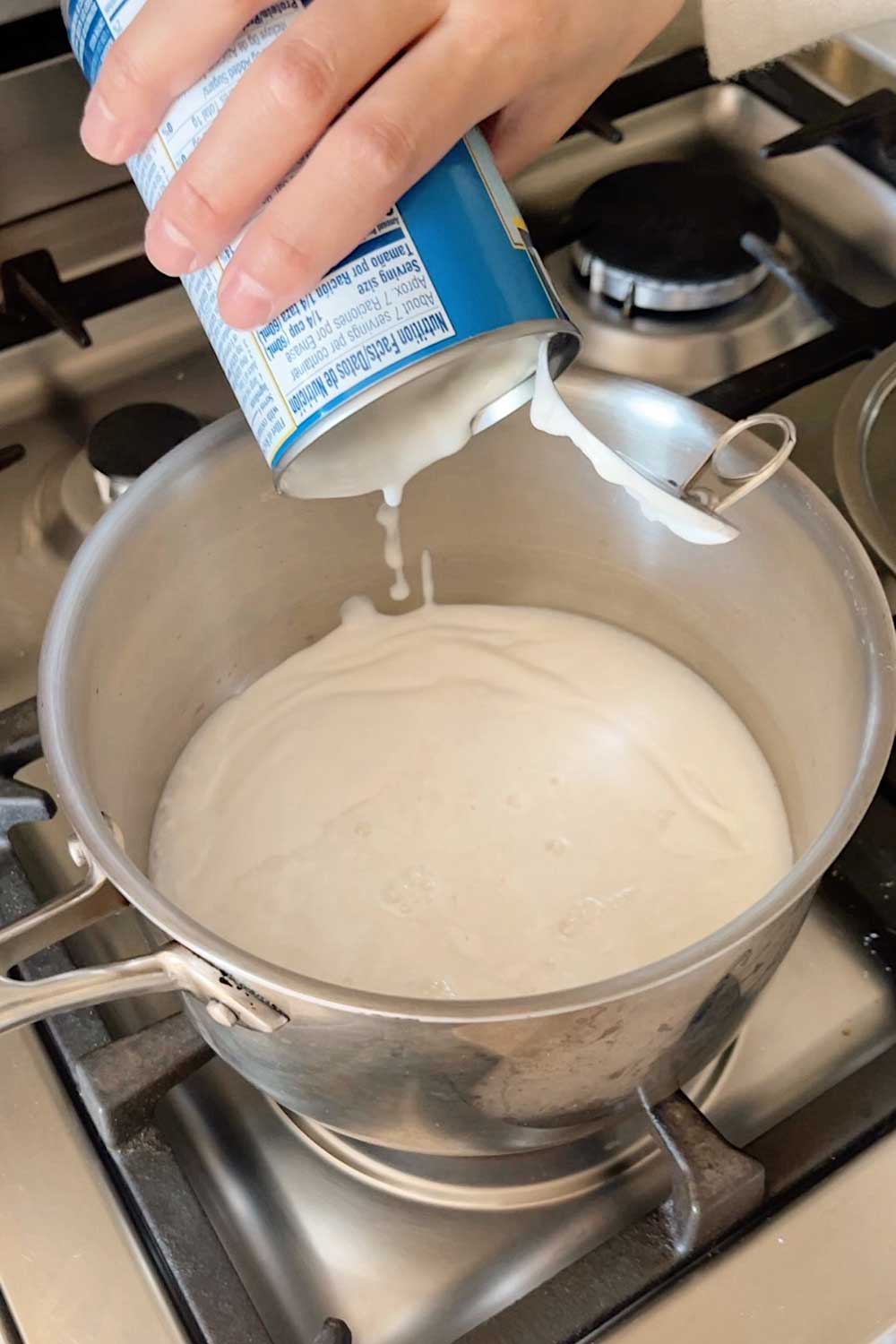
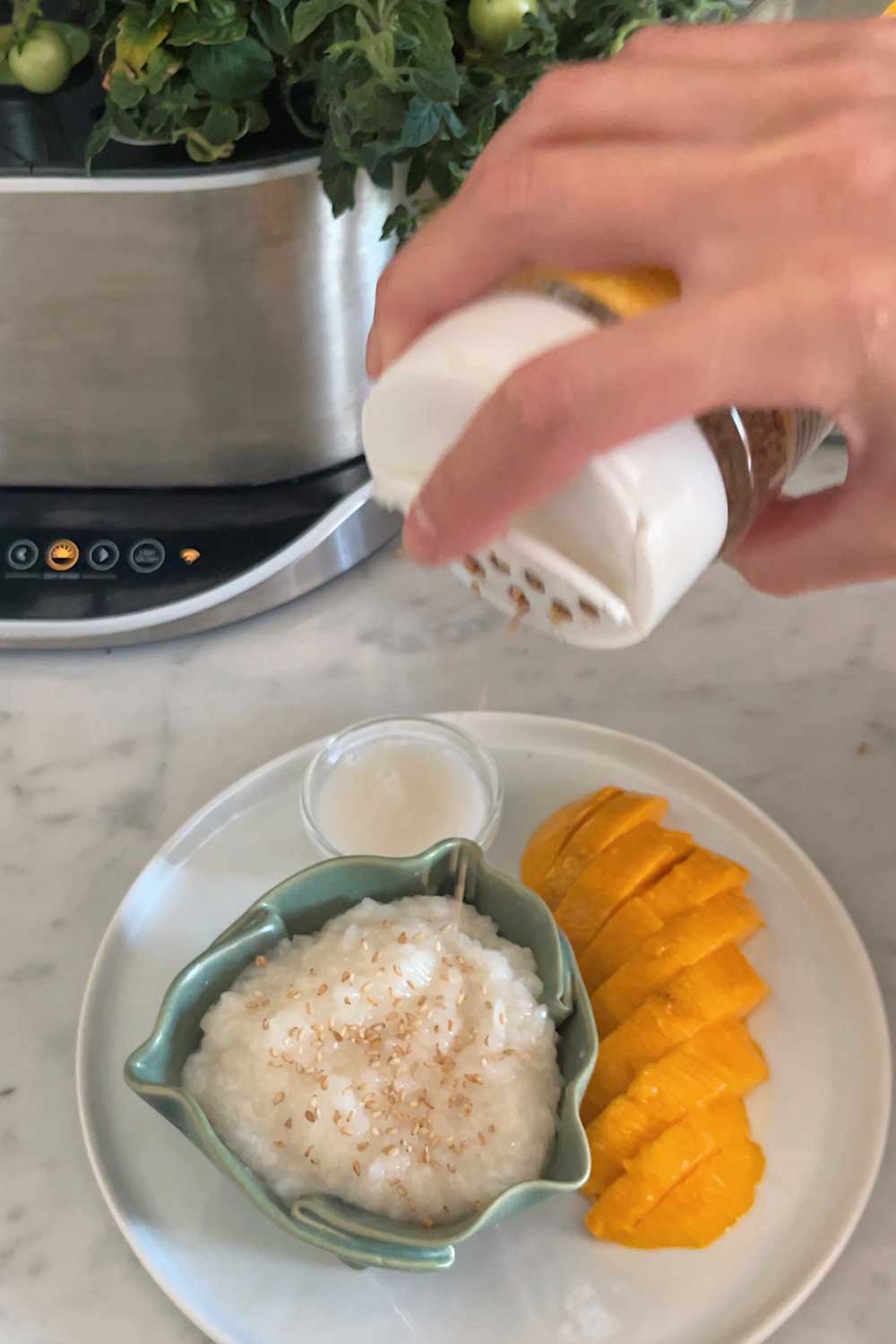

Making the Coconut Syrup & Sauce
Storing Mango Sticky Rice
Mango Sticky Rice Recipe
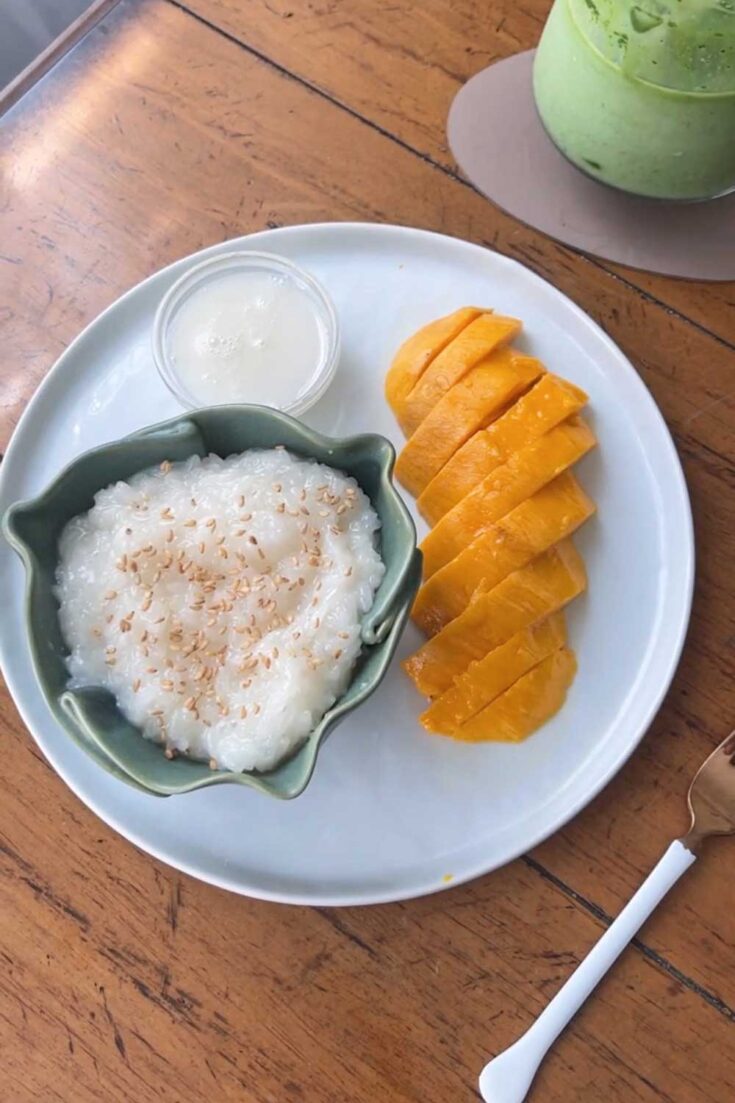
Mango Sticky Rice
Ingredients
Instructions
Notes
Recommended Products
Nutrition Information:
Yield:
2
Serving Size:
1
Amount Per Serving:
Calories: 838Total Fat: 35gSaturated Fat: 24gTrans Fat: 0gUnsaturated Fat: 8gCholesterol: 0mgSodium: 748mgCarbohydrates: 133gFiber: 7gSugar: 99gProtein: 9g





